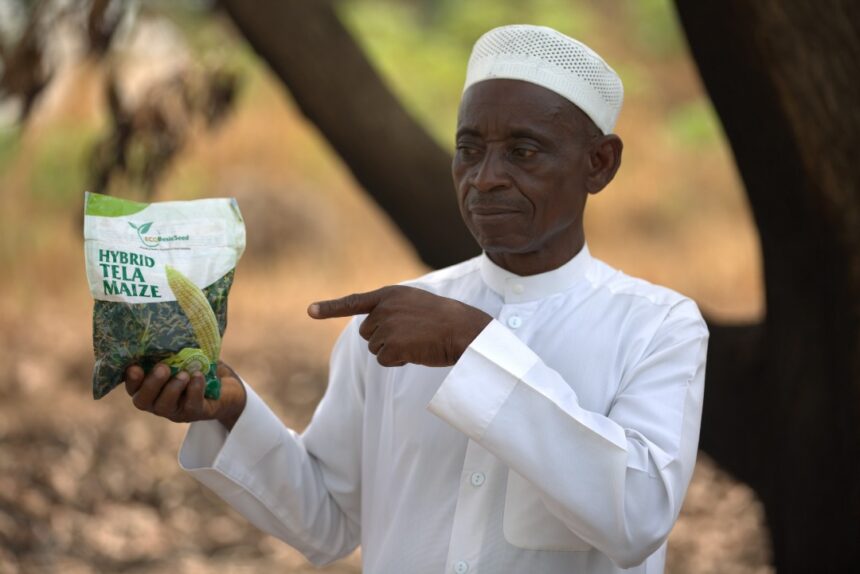Maize farmers in Nigeria are celebrating a breakthrough in agricultural productivity following their first season planting of TELA maize variety, a genetically modified crop developed to withstand rough weather conditions and resistance to stem borers.
Officially released to farmers in June 2024, TELA maize was developed by researchers at the Institute for Agricultural Research (IAR), Ahmadu Bello University, Zaria, in collaboration with international partners under the supervision of the African Agricultural Technology Foundation (AATF). The variety is engineered to resist stem borers, fall armyworms, and mild drought — three of the most common challenges faced by maize growers in Nigeria.
Farmers say the crop has exceeded their expectations. With reduced need for pesticides and fertilizer, the variety has proven both cost-effective and high-yielding.
“For over 15 years I’ve been farming maize, and I’ve never seen a variety like TELA,” Mallam Zarahadeen Jibrin, one of the early farmers who adopted TELA Maize said .
“With very little fertilizer, I was able to harvest almost five bags from just a half bag of seed.”
Jibrin said the success of his crop has generated local interest, with many passersby stopping to ask about the variety. He is now preparing to expand his farmland to cultivate more TELA maize in the upcoming season.
Haruna Musa, a veteran farmer with two decades of experience, has similar testimony to tell.
“TELA maize is unlike any other I’ve planted, The yield was so impressive that I’ve already acquired a bigger plot of land for the next round.”
Musa called on other farmers to adopt the seed and urged the federal government to leverage the success of TELA maize to engage young Nigerians in agriculture. “This seedling can be a game changer — not just for food security, but for employment,” he said.
Similarly, Mustapha Muhammad, who tried TELA maize on a small portion of his land after planting other varieties, described it as a lifesaver. “I’m so glad I planted that little piece. Without it, my family wouldn’t have had enough maize this year,” he said. “The germination rate is excellent, and the productivity is evident during packaging and milling. What started as a trial will now be my mainstay.”
With testimonies mounting, TELA maize is seemingly becoming the preferred choice of maize varieties for Nigerian farmers, many of whom are now calling for wider distribution and support from government agencies to scale adoption. As the 2025 planting season begins, stakeholders are hopeful that the variety could play a central role in transforming Nigeria’s maize production landscape.





